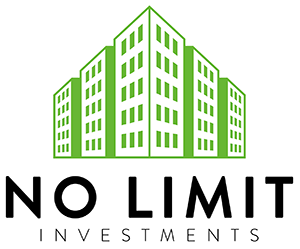Starting a real estate business can feel overwhelming at first, but with the right structure and clear understanding of the process, anyone can learn to build and scale a profitable portfolio. Whether you want to flip houses, invest in rental properties, or develop new construction projects, the key lies in building a strong foundation and using strategic financing solutions. This article breaks down the essential steps, questions, and strategies you need to confidently launch and grow your real estate business.
What Does It Take to Build a Strong Foundation for a Real Estate Business?
Every successful real estate venture starts with clarity of purpose. Before acquiring a single property, define your business vision and identify what success looks like for you. Ask yourself:
- What type of real estate do I want to focus on, residential, commercial, or mixed-use?
- Am I investing for long-term cash flow or short-term profit?
- What market am I best positioned to serve?
Once you have a defined goal, create a detailed business plan. This should include an overview of your target market, financial projections, and an outline of your investment strategy. According to the U.S. Small Business Administration, a well-structured business plan can help attract funding and clarify operational priorities (SBA.gov).
A solid foundation also means establishing your business entity properly—, uch as an LLC or corporation, to separate personal and business liabilities. This is one of the first steps toward building financial credibility in real estate.
How Can Market Research Help You Choose the Right Real Estate Niche?
Market research is where your ideas meet reality. Studying local demand, property values, and rental rates gives you a clear picture of where opportunities exist. The U.S. Department of Housing and Urban Development (HUD) emphasizes that understanding regional housing trends helps investors avoid overpaying or investing in low-demand areas (HUD.gov).
Focus on metrics like:
- Population growth and migration patterns
- Employment rates and average household income
- Local zoning laws and development plans
- Comparable property data and appreciation trends
By analyzing these factors, you can identify the most profitable niche, such as short-term rentals, multifamily housing, or fix-and-flip opportunities. Aligning your market knowledge with your financial capacity is the foundation for long-term success.
What Legal and Financial Preparations Should You Complete Before Launching?
Real estate is a heavily regulated industry, and compliance is crucial. Before making your first purchase, ensure you’ve completed the following steps:
- Register your business entity with your state.
- Obtain necessary licenses and permits, depending on your location and activity type.
- Open a dedicated business bank account to track expenses and income.
- Consult a real estate attorney or tax professional for advice on contracts and liability.
Financial preparation also includes creating a funding strategy. This involves calculating your startup capital, evaluating potential loan options, and maintaining a good credit profile. Investors often underestimate the importance of having reliable financing partners that understand real estate investing dynamics. This is where working with specialized lending firms can make a meaningful difference.
How Do You Secure Funding and Choose the Right Real Estate Loan Options?
Financing is the engine that drives your real estate business forward. Whether you’re purchasing your first property or expanding a portfolio, selecting the right loan type can maximize profitability and reduce risk.
Some key loan options include:
- Fix & Flip Loans: Ideal for investors who buy distressed properties, renovate them, and sell for profit.
- Buy & Hold Mortgages: Suitable for those seeking consistent rental income and long-term appreciation.
- BRRRR Financing (Buy, Rehab, Rent, Refinance, Repeat): Allows investors to recycle capital and scale faster.
- DSCR Loans (Debt Service Coverage Ratio): Designed for investors who qualify based on property cash flow, not personal income.
- New Construction Loans: Perfect for building properties from the ground up, whether for resale or rental.
Lenders like No Limit Investments specialize in these real estate financing solutions, offering flexibility for investors at all levels. Their programs also include business credit facilities and credit & debt advisory services to help structure financing effectively and support long-term portfolio growth.
By using a mix of financing tools, you can maintain liquidity, improve leverage, and access equity as your business expands.
Why Is Strategic Property Acquisition Crucial for Long-Term Growth?
Once your funding is secured, the next step is identifying the right properties. Strategic acquisition means more than buying low, it involves finding assets that fit your goals and deliver sustainable returns. Key considerations include:
- Location and neighborhood trends
- Property condition and renovation potential
- Market value versus after-repair value (ARV)
- Rental demand and expected cash flow
The “buy right” principle ensures that every property in your portfolio contributes to growth. As you evaluate opportunities, tools like cash-on-cash return and cap rate analysis can guide decisions. Investors who master acquisition discipline tend to scale more efficiently and withstand market fluctuations.
How Can You Develop a Sustainable Real Estate Business Model?
A sustainable business model focuses on consistency, not just one-time wins. Diversify your income streams by combining short-term projects (like fix & flips) with long-term holdings (like rentals or new developments). Create predictable systems for:
- Lead generation: Using networking, social media, and referrals.
- Property management: Streamlining tenant communication and maintenance.
- Financial tracking: Monitoring income, expenses, and return metrics.
Establishing solid operational systems allows you to reinvest profits strategically. Real estate businesses that emphasize efficiency and transparency are more resilient and attractive to potential partners and lenders.
What Marketing and Networking Strategies Drive Real Estate Success?
In today’s competitive landscape, visibility matters as much as capital. Effective marketing helps you find deals, attract investors, and build credibility. Focus on creating an online presence through:
- A professional website showcasing your projects and expertise
- Consistent branding and social media updates
- Educational content such as blogs or video tours
- Email marketing to nurture client relationships
Networking is equally important. Join local real estate associations, attend investor meetups, and build partnerships with contractors, agents, and property managers. These relationships can lead to off-market deals and joint ventures that accelerate business growth.
How Can You Scale and Diversify Your Portfolio for Maximum Profitability?
Scaling is the stage where your business becomes a true wealth-building machine. It involves expanding your holdings, increasing revenue, and improving operational efficiency. To scale successfully, consider the following strategies:
- Use cash-out refinance to access built-up equity from existing properties.
- Leverage BRRRR financing to reinvest profits into new deals.
- Utilize business credit facilities to fund renovations or new acquisitions without draining liquidity.
- Seek growth & development services that guide expansion through project planning and financial optimization.
By combining smart financing tools with experienced advisory support, investors can move from individual projects to scalable portfolios that generate passive income and long-term stability.
Why Should You Partner with No Limit Investments for Your Real Estate Financing?

If you want to launch or expand a real estate business confidently, working with a lending partner that understands your goals is essential. No Limit Investments offers tailored real estate financing solutions that help investors at every stage—from first-time buyers to seasoned developers. Their programs include:
- Fix & flip loans for short-term projects
- Buy & hold mortgages for steady cash flow
- BRRRR financing for scalable portfolio growth
- DSCR and new construction loans for income-based and development-based funding
- Business credit facilities and credit & debt advisory for stronger financial positioning
- Growth & development services to help investors reach new heights
Partnering with experts who understand investor needs ensures you access capital efficiently while building a sustainable real estate business.
Ready to take your real estate business to the next level? Visit https://nolimitinvestments.net/ today to explore customized financing options designed to help you invest smarter, grow faster, and reach your goals. Let your next property investment be the start of a limitless future. Call now at 331-210-0501.
Final Thoughts
Launching a real estate business requires more than ambition, it demands structure, strategy, and the right financial tools. By following a step-by-step framework that emphasizes planning, research, funding, and long-term growth, you can build a business that thrives through any market cycle. With the right guidance and access to professional financing, your journey toward financial freedom can begin today.
Works Cited
U.S. Department of Housing and Urban Development. Market Trends and Housing Data. HUD.gov, 2024, https://www.hud.gov.
U.S. Small Business Administration. Write Your Business Plan. SBA.gov, 2024, https://www.sba.gov/business-guide/plan-your-business/write-your-business-plan.
U.S. Census Bureau. Housing Vacancies and Homeownership (CPS/HVS). Census.gov, 2024, https://www.census.gov/housing/hvs/index.html.
Federal Housing Finance Agency. Understanding Mortgage Markets. FHFA.gov, 2024, https://www.fhfa.gov.
Frequently Asked Questions
- What is the first step to starting a real estate business?
Define your goals and create a detailed business plan that outlines your target market, investment strategy, and funding approach.
- How much capital do I need to begin investing?
Startup costs vary depending on your strategy. Some investors start small with fix & flip loans or BRRRR financing, while others begin with rental properties using DSCR loans.
- Is real estate a good long-term investment?
Yes. Real estate often appreciates over time and provides cash flow through rentals, offering stability compared to other investments.
- How can I finance multiple properties at once?
You can leverage business credit facilities, cash-out refinances, or portfolio loans to expand while maintaining liquidity.
- Why should I work with specialized lenders?
Lenders focused on real estate investment—such as No Limit Investments—offer tailored loan products and advisory services that align with investor needs.







